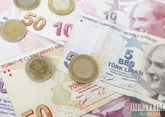U.S. actions have provoked a number of countries to switch towards trading in national currencies, and Turkey is actively discussing it with Russia, China and other countries," Turkish President Recep Tayyip Erdogan’s spokesman Ibrahim Kalin said.
"We are discussing the transition to national currencies not only with Russia and China, but also with other countries. It is not just Turkey’s request. In other countries, there has been reaction to US attacks. Many countries oppose the pressure of the U.S. dollar as a means of political and economic coercion, and we see that the demand for payments in national currencies between different countries is increasing," RIA Novosti cited Kalin as saying.
Earlier, Erdogan announced Turkey was preparing to conduct trade through national currencies with China, Russia, Iran and Ukraine.
The head of the department of stock markets and financial engineering of the Faculty of Finance and the Banking Business of RANEPA, former deputy chairman of the Central Bank of Russia Konstantin Korischenko, speaking with Vestnik Kavkaza, noted that countries are becoming increasingly interested in abandoning the dollar for bilateral trade, but due to the volatility of national currencies, their opportunities are severely limited. "Trading in national currencies is becoming more attractive, but it does not become more real: the currency risks of both the ruble and the lira are so great today, that using them in long-term contracts is quite difficult," he said.
"If we talk only about bilateral deals, as in the case of Russia and Turkey, then it will be necessary to choose one of the two currencies - lira or ruble. Of course, they can use both currencies, but it would be a very high currency risk," Konstantin Korishchenko explained.
Theoretically, the third option is possible - the use of any new currency as a means of international trade. "But it is very unlikely. There are very few currencies that are able to become basic in international transactions, for example, the euro or the yuan. But for this to happen, the European Central Bank and the Bank of China have to actively organize the entire process," the former deputy chairman of the Central Bank of Russia said.
Professor of the RANEPA faculty of Finance, Money Circulation and Credit, Yuri Yudenkov, expressed confidence that Moscow and Ankara will agree to trade using some intermediary currency. "In the case of Russia and Turkey, it is possible to use a national currency, but they will choose any third currency as a reference point. Let's say we supply them with gas, they pay in rubles, we buy tomatoes and pay them in liras. But an intermediary currency is needed, for example the euro," he said.
Despite all the risks of trading in the national currency, it is still more profitable for Russia and Turkey to transfer to this system than to continue trading in dollars. "Risks always remain due to uneven fluctuations in the national currency rates, but the risks of trade in dollars are higher for both us and the Turks. At the same time, I would not expect that the world will start to abandon dollars, according to statistics, 70% of global trade are invoiced in dollars. Only individual pairs of countries may abandon it," Yudenkov expects.
On Friday, U.S. President Donald Trump authorized higher tariffs on imports from Turkey, imposing a 20% duty on aluminum and 50% one on steel. Today, Turkey's government has raised tariffs on US imports, including tariffs on alcoholic beverages by 140%, on tobacco by 60%, and on passenger cars by 120%.










